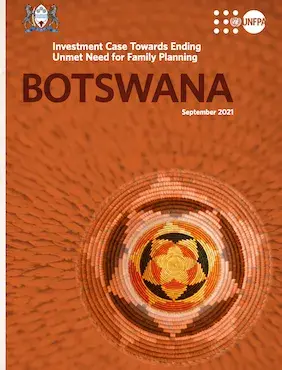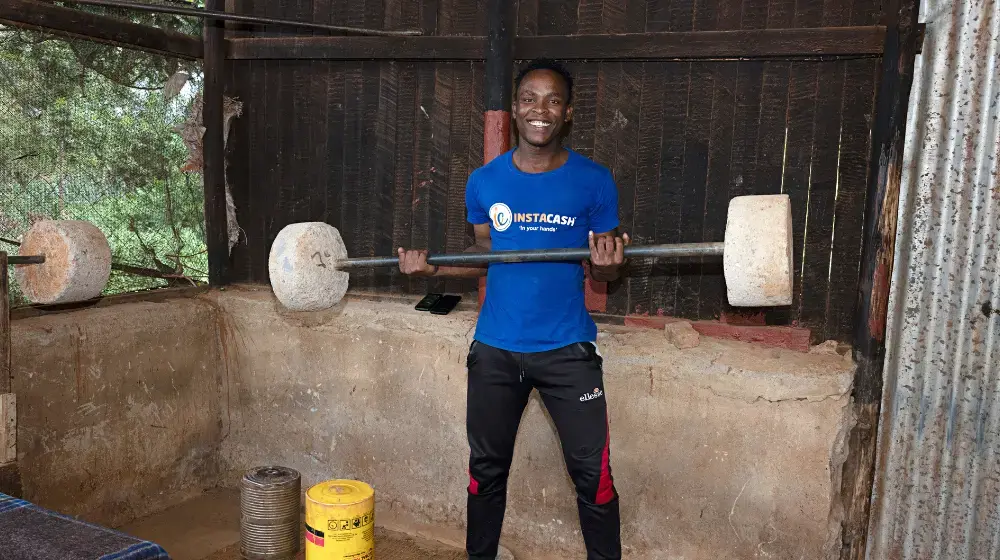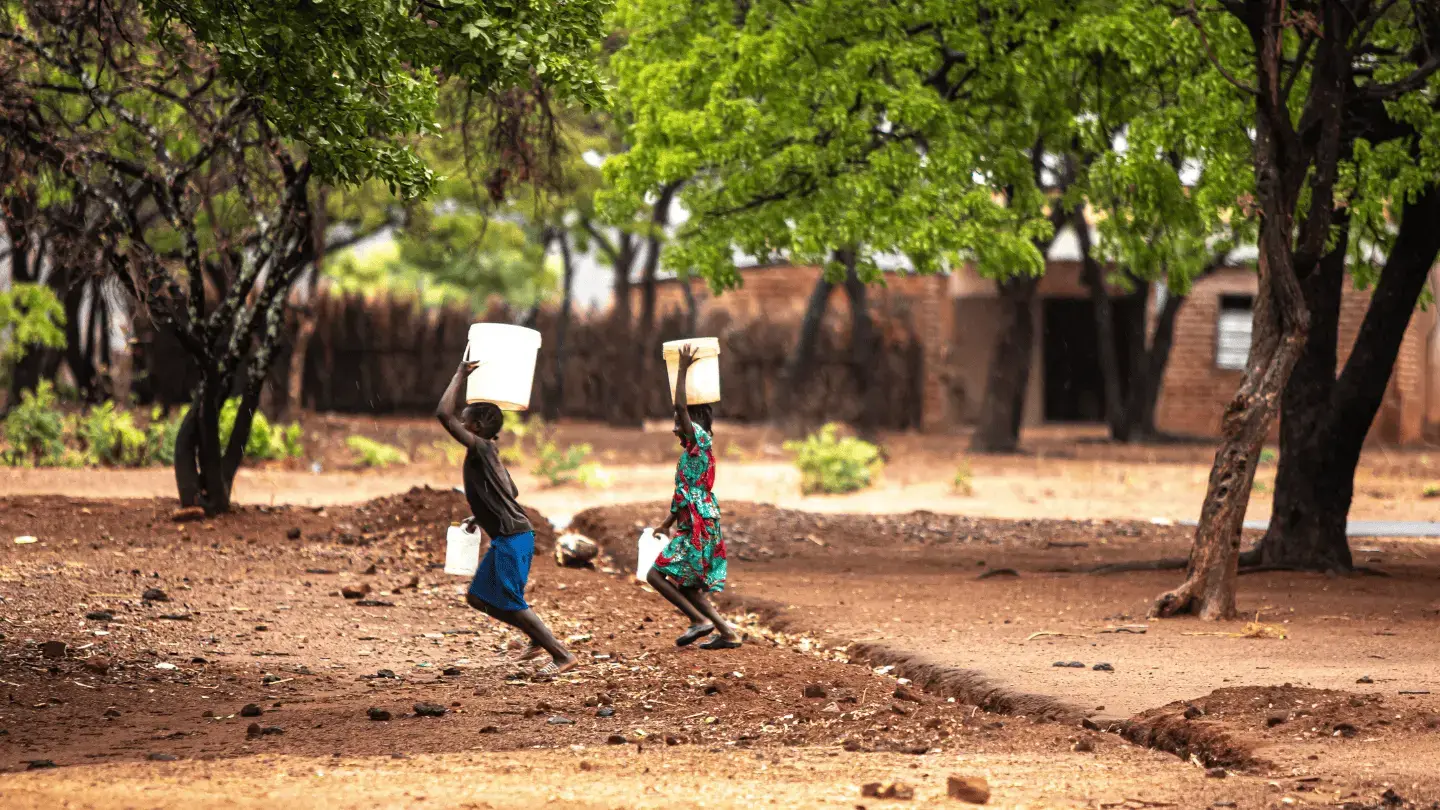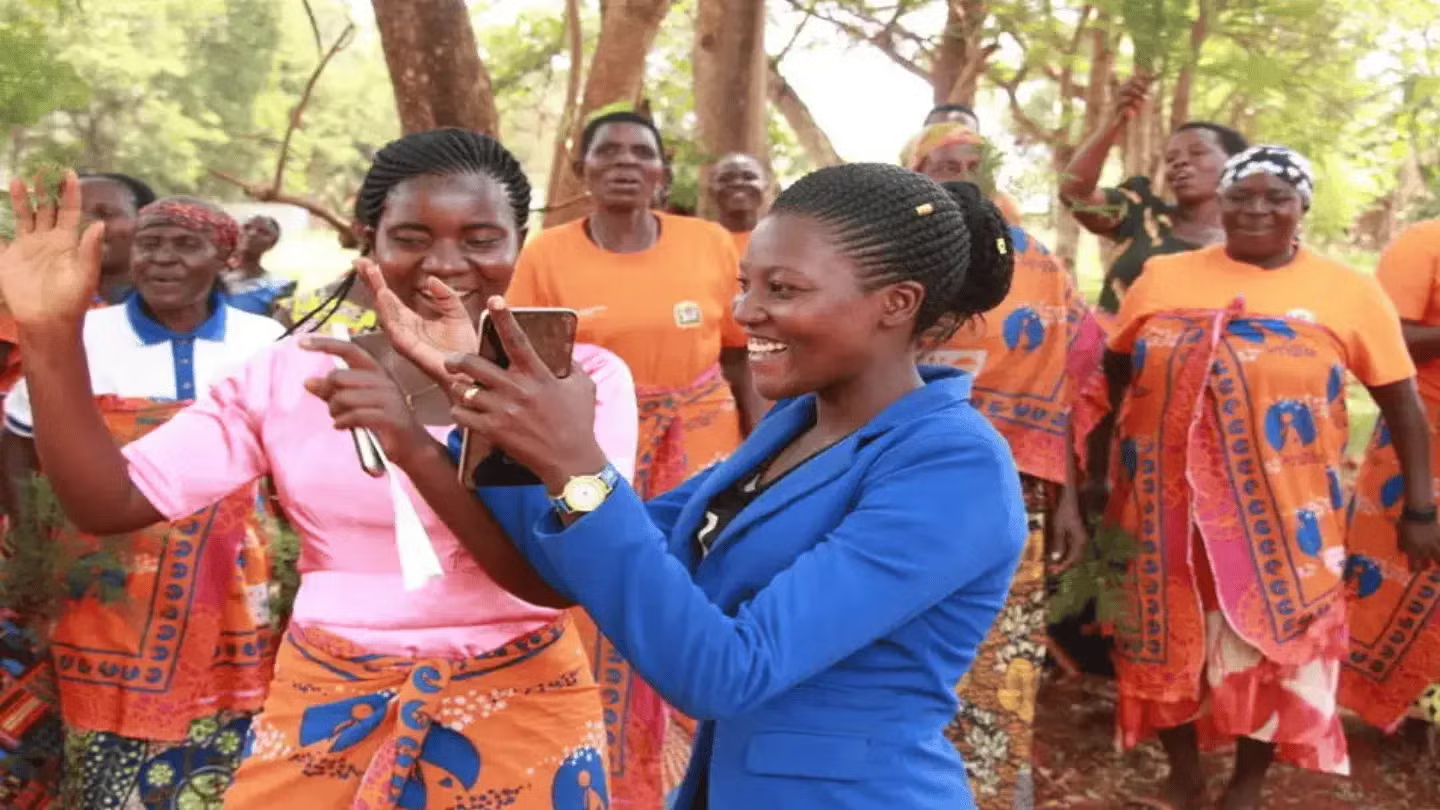Botswana is an upper-middle-income country with a population of about 2.2 million people. The country has enjoyed good governance, a stable and democratic government, and a sustained high economic growth of about 9 per cent for two decades between 1975 and 1996. Growth however slowed down to an average of 3.9 per cent between 2009 and 2016. One of the aspirations of Botswana as expressed in the national policy document, Vision 2036, is to graduate from an upper-middle-income country to a high-income country with increased prosperity for its people by 2036.
Since 1973, the Government of Botswana has shown a strong commitment to family planning by integrating sexual and reproductive health (SRH) and sexually transmitted infections (STI) services into the health system.
This study estimates the investment and the impact of scaling up coverage of modern contraceptive methods among married/in-union women aged 15-49 years in Botswana within a time frame of ten years (2020-2030). The goal is to reduce unmet need for family planning among women, from 17.3 per cent in 2020 to 8 per cent or less by 2030.





